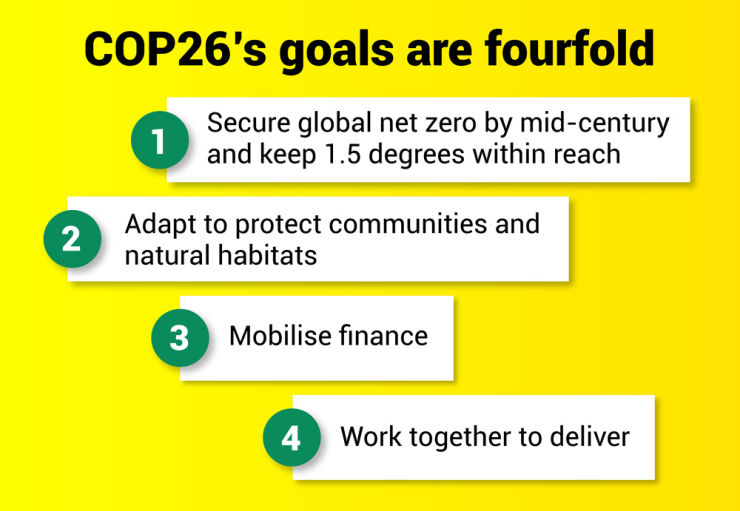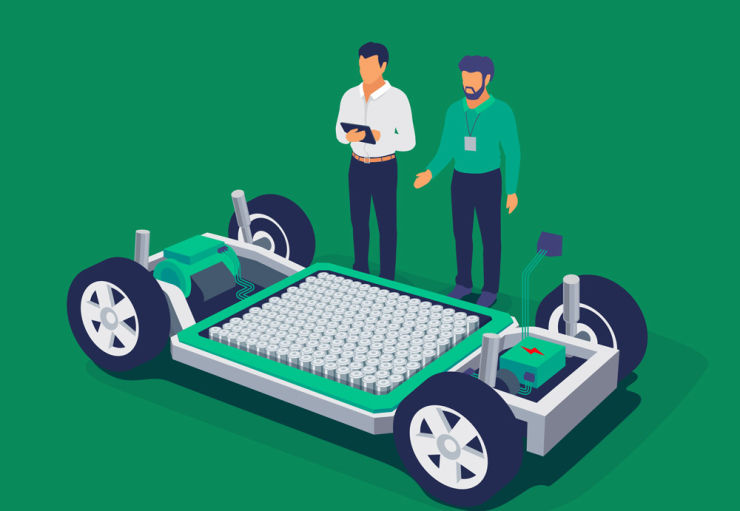
The EV industry can help COP26 deliver its zero carbon goals
Electric Vehicles have the propensity to help lower carbon emissions, provided of course there is an uptake and skilled professionals to provide after-sales service
In the February of 1968, at the tender age of 66, The legendary New Orleans singer and trumpeter Louis “Satchmo” Armstrong, who had been making records since 1923, released the song “What A Wonderful World.” It would become the biggest-selling song of his long and storied career and perhaps now, the anthem for climate change.
What a wonderful world it will indeed be if global leaders and industries across the planet would put the very necessary steps in place to meet the global target of carbon neutrality by 2050. Some would say 2050 is already too late, but if it’s all we have to work with experts say that this date is achievable, provided of course that global superpowers put agendas and economics aside to work together to meet this very necessary target.
With the latest climate change conference, COP26, which started on 31 October and ends on 12 November in Glasgow, there is apparently hope, as this, the 26th UN Climate Change Conference of the Parties will hopefully help to accelerate action towards the goals of the Paris Agreement and the UN Framework Convention on Climate Change.

2050 seems like such a long time away, but as we know time waits for no man, and so these superpowers are being asked to come forward with ambitious 2030 emissions reductions targets that align with reaching net zero carbon emissions. This target has been given a shot in the arm with America and China deciding on 10 November 2021 to “enhance ambition” on climate change, saying they would work together to do more to cut emissions this decade, while China committed for the first time to reduce methane, a potent greenhouse gas.
The road ahead
Cutting back on the use of fossil fuels by industry is being seen as the major way forward in the world meeting its zero carbon emission targets, and one such industry that has a real part to play, is the motor industry.
Right now, there is an estimated 1.4 billion cars on the road belching out carbon monoxide fumes that along with methane are a major contributor to greenhouse gases. In the US the average passenger vehicle on the road releases 650g of CO2/km and in Europe the average emissions for a new petrol car in 2018 was 123g of CO2/km.
But it would appear that the motor industry has really woken up to how they are contributing to climate change by minimizing the production of petrol and diesel vehicles and maximizing the production of electric vehicles (EVs).
Sounds like a simple equation, but as always there is a stumbling block, and in this instance, it is the worrying statistic that as of today there exists a marked skills gap in the industry.

It is reported that 2026 will mark the cross-roads for the EV skills gap when, if not addressed now, it is predicted that there will be a shortfall of 35,700 technicians.
Steve Nash, CEO of the Institute of the Motor Industry comments, “The pace of EV adoption is accelerating, even while the issues around infrastructure remain a barrier. Once the charging network is fit for purpose, combined with electric vehicles becoming more financially accessible, the next big challenge will be how to ensure we have a workforce adequately qualified to provide the essential servicing, maintenance, and repair to keep these vehicles safe on the roads. And that’s where we believe government attention – and funds – should be focused now.”
It's all about education
Whether it’s looking at incentives to retrain the existing workforce in the vehicle industry or ensuring that school-leavers and people changing the direction of their career are excited about the prospects of working in such a fast-moving sector, there needs to be a mind-shift in how to fix the widening skills gap. Significant investment is being ploughed into infrastructure, but governments still seem to be ignoring the fact that without a skilled workforce, it will fail in its decarbonisation ambitions.
But it’s not just after sales service that will be letting the side down, it’s also in the EV battery sector. Here, the South Korean Battery giant LG Energy Solutions says that it is facing a skills shortage that could drag on the global race towards zero-emissions transport.
So where to from here? It is making sure that school leavers have the skills required to hit the ground running when they enter the motor industry, and those in it are exposed to learning programs that will allow them to upskill or reskill to ensure that they remain employable and able to carry out the tasks at hand.
"Nexford's curriculum is based on the mastery of competencies relevant in the workplace. This is a model that the EV industry would be wise to adopt as they endeavor to bridge the ever-widening skills gaps.”
Universities hold the key
Should universities make employability their central focus or do employers need to accept a degree of responsibility for shaping new hires to meet their needs?
There is general acceptance that, while some skills will be learned or fine-tuned in the workplace, universities certainly play a role in equipping students with not only the technical skills required for their chosen career, but the sought-after soft skills as well.
Steps that higher education institutions can take to better prepare graduates for employment include providing students with varied learning experiences, incorporating real-world scenarios in teaching, and cultivating a community of support and advice.
This it is believed will help close the skills gaps that are in demand for current and future engineers looking for jobs in the Electric Vehicle industry. But what exactly are these skills and what is required to procure them? A variety of competencies are required by the different automotive industry companies such as the OEMs and supporting automotive industries, depending on their product portfolio. This pertains to subject matter knowledge in a broad spectrum of technologies like:

Anyone with a passion to shape the future and with an engineering degree in any of the following domains: Electronics, Mechanical, Electrical, Instrumentation, Automobile engineering, Computer science, or Mechatronics can be an Electric Vehicle Design Engineer or Automotive Electronics Engineer.
Further, there are many specializations such as Motor Design, Vehicle ECU design, Powertrain Design, Programming, Test and Validation jobs as one progress in this domain.
In a ‘Closing the skills gap’ report it was stated that a growing number of businesses have taken matters into their own hands, partnering directly with institutions of higher education in a variety of ways to recalibrate this apparent imbalance.
Universities offering competency-based learning would appear to be the solution to answering the prayers of the EV industry and businesses that operate within it. This is complemented by such higher education institutions offering a flexible learning environment that puts the needs of workers first, allowing them to fit their studies around their life and hold down a full-time job as they improve their skills.
In response to the crucial role that universities will play in solving the skills gaps that exist in the workplace, Fadl al Tarzi, CEO and Founder of Nexford University a next-generation online higher institution says, “At Nexford we have designed a curriculum based on the mastery of competencies relevant in the workplace. Our undergraduate and graduate degrees and are designed to equip learners with the skills needed for lifelong learning and skill development that will help them succeed today and stand out tomorrow. We are proud to say that our graduates can apply new skills from day one at work which removes the cost and hassle of employers having to provide additional training. This is a model that the EV industry would be wise to adopt as they endeavor to bridge the ever-widening skills gaps.”
Time waits for no man and it is ticking as we try to do everything in our power to save the planet and deliver a sustainable future for all. As the late Nelson Mandela once said, “Education is the most powerful weapon which you can use to change the world.” “The power of education extends beyond the development of skills we need for economic success. It can contribute to nation-building and reconciliation.”
Wise words indeed and ones that we would be best served to take cognizance of before it’s all too late.

Mark is a college graduate with Honours in Copywriting. He is the Content Marketing Manager at Nexford, creating engaging, thought-provoking, and action-oriented content.
Join our newsletter and be the first to receive news about our programs, events and articles.